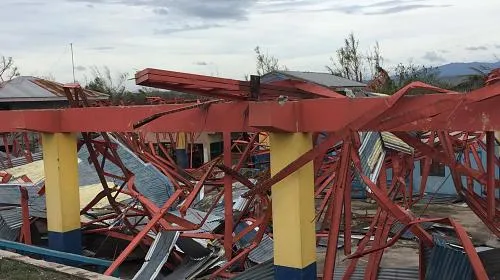October 21, 2016 – CARE’s emergency response teams have begun assessing the damage caused by super Typhoon Haima which tore through the Philippines earlier this week. About 90,000 people have been evacuated from their homes, and to date there are seven confirmed casualties.
With sustained wind speeds of up to 215 kilometers-per-hour, Typhoon Haima was the strongest storm to hit the Philippines since Typhoon Haiyan in 2013. Many communities are still isolated and at risk of secondary impacts due to landslides, flashfloods and damaged roads and bridges.
“A lot of people we spoke with are afraid to return to their homes since there’s still a possibility of landslides in their areas,” said CARE’s Assessment Team Leader, John Tamayo.
“There are coastal communities in areas we visited that are still isolated. Some roads are not passable yet and we worry for these families who might have little or no access to support.”
International aid agency CARE and its partners are already distributing initial relief items such as food packs, as they simultaneously conduct rapid assessments in affected areas.
“People are in dire need of clean drinking water as their water supplies have been damaged or contaminated,” said Jerome Lanit, CARE’s Emergency Coordinator. “It’s important we reach them as soon as possible.”
CARE has worked in the Philippines since 1949, providing emergency relief when disaster strikes and helping communities prepare for disasters. CARE’s past responses in the Philippines have included Typhoon Bopha in 2012, Haiyan in 2013, Hagupit in 2014, Koppu and Melor in 2015. CARE continues to assist Typhoon Haiyan-affected communities to rebuild their livelihoods.
About CARE: Founded in 1945, CARE is a leading humanitarian organization fighting global poverty. CARE has more than six decades of experience helping people prepare for disasters, providing lifesaving assistance when a crisis hits, and helping communities recover after the emergency has passed. CARE places special focus on women and children, who are often disproportionately affected by disasters. To learn more visit care.org.
For interviews, contact Nicole Harris, 404-735-0871, nharris@care.org

